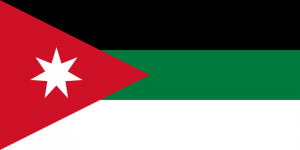Language/North-levantine-arabic/Grammar/Questions
Hi North Levantine Arabic learners! 😊
In this lesson, we will focus on forming questions in North Levantine Arabic. You will learn about the different question words, how to form Yes/No questions and Wh-questions. Also, you will have the chance to practice your skills with examples and exercises. Don't hesitate to ask questions in the comments section below. 🙋♀️
Don't hesitate to look into these other pages after completing this lesson: Nouns, Pronouns & Adjectives.
Introduction[edit | edit source]
In North Levantine Arabic, there are different ways of forming questions, depending on the type of question you want to ask. It is important to know the most common question words, how they are used and where to place them in the sentence. In addition, you will learn how to use intonation to distinguish between yes/no questions and wh-questions.
If you want to improve your North Levantine Arabic Grammar, you can also use the Polyglot Club website. Find native speakers and ask them any questions!
Vocabulary[edit | edit source]
Here are some question words that you need to know:
| Question Word | Arabic | Transliteration | English Translation |
|---|---|---|---|
| What? | ماذا؟ | Maatha? | What? |
| Who? | من؟ | Min? | Who? |
| When? | متى؟ | Mataa? | When? |
| Where? | أين؟ | Ayna? | Where? |
| Why? | لماذا؟ | Limadha? | Why? |
| How? | كيف؟ | Kayfa? | How? |
Yes/No questions[edit | edit source]
In North Levantine Arabic, you can form Yes/No questions by adding the particle "هل" (hal) at the beginning of the sentence. "هل" (hal) is equivalent to English "do/does" or "is/are/am". It indicates that you are asking a question that can be answered by "yes" or "no".
Here are some examples:
| North Levantine Arabic | Transliteration | English Translation |
|---|---|---|
| هل تحب الشاي؟ | Hal tuhibb alshay? | Do you like tea? |
| هل تعمل في البنك؟ | Hal ta'mal fi albank? | Do you work at the bank? |
| هل تسكن في دمشق؟ | Hal taskun fi dimashq? | Do you live in Damascus? |
Notice that "هل" (hal) doesn't have a direct translation in English. It is used only to form Yes/No questions. If you are asking a question without "هل" (hal), intonation is the only way to indicate that you are asking a question.
Wh-questions[edit | edit source]
Wh-questions in North Levantine Arabic use question words such as "ماذا؟" (maatha), "من؟" (min), "متى؟" (mataa), "أين؟" (ayna), "لماذا؟" (limadha) and "كيف؟" (kayfa). The question word is placed at the beginning of the sentence.
Here are some examples:
| North Levantine Arabic | Transliteration | English Translation |
|---|---|---|
| ماذا تريد أن تأكل؟ | Maatha tureed an taakul? | What do you want to eat? |
| من يعمل في المدينة؟ | Min ya'mal fi almadinah? | Who works in the city? |
| متى ستعود من العمل؟ | Mataa sat'ood min al'amal? | When will you return from work? |
| أين يقع الفندق؟ | Ayna yaqaa alfunduq? | Where is the hotel located? |
| لماذا لا تحب البحر؟ | Limadha la tuhibb albahar? | Why don't you like the sea? |
| كيف يمكنني الذهاب إلى المطار؟ | Kayfa yumkinuni aldhahab ila almatar? | How can I go to the airport? |
In many cases, you can also use a question word with "هل" (hal) to form a Wh-question, for example:
| North Levantine Arabic | Transliteration | English Translation |
|---|---|---|
| هل تعرف من يعمل في المدينة؟ | Hal ta'ref min ya'mal fi almadinah? | Do you know who works in the city? |
| هل تستطيع أن تخبرني متى يفتح المطعم؟ | Hal tastatee' an tukhbirni mataa yuftah almat'am? | Can you tell me when the restaurant opens? |
Dialogue[edit | edit source]
Here is a dialogue between two people, Ahmad and Tarek, that illustrate some of the question words we learned:
- Ahmad: مرحبا! كيف حالك؟؟ (Marhaba! Kayfa haluk?)
- Tarek: مرحبا! بخير، شكرا لك. وأنت؟ (Marhaba! Bikhayr, shukran lak. Wa anta?)
- Ahmad: بخير، شكرا. ماذا تريد أن تفعل اليوم؟ (Bikhayr, shukran. Maatha tureed an taf'al alyawm?)
- Tarek: سأقوم بزيارة صديقي في دمشق. (Sa'qoom biziarat sadiqi fi dimashq.)
- Ahmad: جيد! متى ستعود؟ (Jayyid! Mataa sat'ood?)
- Tarek: سأعود يوم الأحد. (Sa'aood yawm al'ahad.)
- Ahmad: أين تقيم صديقك في دمشق؟ (Ayna taqim sadiquka fi dimashq?)
- Tarek: يسكن في الحميدية. (Yaskun fi alhamidiyah.)
- Ahmad: شكرا! هل تريد أن أقودك هناك؟ (Shukran! Hal tureed an aqoodak hunaka?)
- Tarek: لا، شكرا. أعرف الطريق جيدا. (La, shukran. 'A'ref althariq jayyida.)
Translation:
- Ahmad: Hi! How are you?
- Tarek: Hi! I'm doing well, thanks. And you?
- Ahmad: I'm good, thanks. What do you want to do today?
- Tarek: I'm going to visit my friend in Damascus.
- Ahmad: Great! When will you return?
- Tarek: I'll be back on Sunday.
- Ahmad: Where does your friend live in Damascus?
- Tarek: He lives in Al-Hamidiyah.
- Ahmad: Thanks! Do you want me to drive you there?
- Tarek: No, thanks. I know the way well.
Exercise[edit | edit source]
Rewrite the following sentences as questions using the correct question words:
Example: Ahmed is a doctor. (Who)
Answer: Who is Ahmed?
1. I work for a company. (Where) 2. They went to the beach. (What) 3. She is studying Arabic. (Why) 4. We will have dinner at home. (When) 5. You bought a new car. (How)
Sources[edit | edit source]
➡ If you have any questions, please ask them in the comments section below.
➡ Feel free to edit this wiki page if you think it can be improved. 😎
Other Lessons[edit | edit source]
- How to Use Have
- How to Use Be
- Pronouns
- Give your Opinion
- Nouns
- Future Tense
- Negation
- Adjectives
- Conditional Mood

